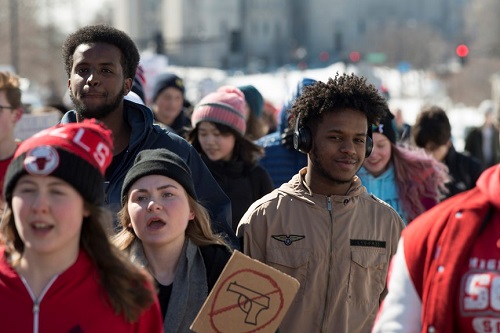Fibonacci Blue photo
By
Ann E. Wallace
Dear Parents
Each email, each text
unexpected, opened with panic
and dread, as dear parents hold
their children in their breath and
in the beat of their hearts
as they hesitate
before looking, to find an invitation
to an open house, a request
for volunteers, or for money, or
an announcement of police on site,
of students locked in, locked down,
and then they wait
again for assurance
of the school’s caution, of steps taken
just to be sure, of officers called just in case—
I know this language well, have typed
these words, and received them too—
or they wait
for the moment the uneasy heart has
been awaiting, when it stutters and
threatens to stop, the pain inside tight
and pulsing, the threat not a threat,
because the danger
this time is real.
What new ways to communicate
do we need, to signal to parents
now and this time they should
take precaution, steel themselves
and seek shelter, before checking
their phones?
Overlooked*
My mother does not like bridges,
which is interesting because my father built
a career testing them to be sure they hold
the integrity to support those who cross over.
Perhaps years of hearing about maximum load
and stress inspires thoughtful skepticism.
I was raised to be intrigued by the graceful span
of a suspension bridge, with strong pilings
that hold so much in the balance, yet
I learned early the danger is not always where
we expect, in the middle, for those with faith
to traverse from one shore to another.
Emily Roebling learned this the hard way—
the danger is hidden in the solid supports,
for unwitting workers who descend into
the water, held in caissons, encased
in air that has not pressurized, long before
the roadbed might be safely hung between.
Father and son engineered a modern marvel
immortalized in photographs and still standing,
a wonder that brought death and disease,
including their own, while the pedigreed girl
from Cold Spring on Hudson stationed herself
on site to oversee the unparalleled suspension.
From his sick bed, Washington Roebling watched
and instructed until he lost voice and vision,
so when his father’s bridge was complete
it was his wife Emily, who had learned to see
and think like an engineer, but smarter, because
she knew not to enter the deadly chambers.
And it was she who remained standing,
she who was the first person to cross
the Brooklyn Bridge in 1883,
carrying a rooster for luck.
* Written in response to the New York Times’ new feature (of the same name) belatedly memorializing women who never received obituaries in the Times
Ann E. Wallace
Ann E. Wallace writes of life with illness, motherhood, and other everyday realities. Her work has recently appeared in Poets Reading the News, Juniper, The Literary Nest, Eunoia Review, Rogue Agent, The Same, and other journals. She lives in Jersey City, NJ where she teaches English at New Jersey City University. She is on Twitter @annwlace409.



No Comments Yet!
You can be first to comment this post!